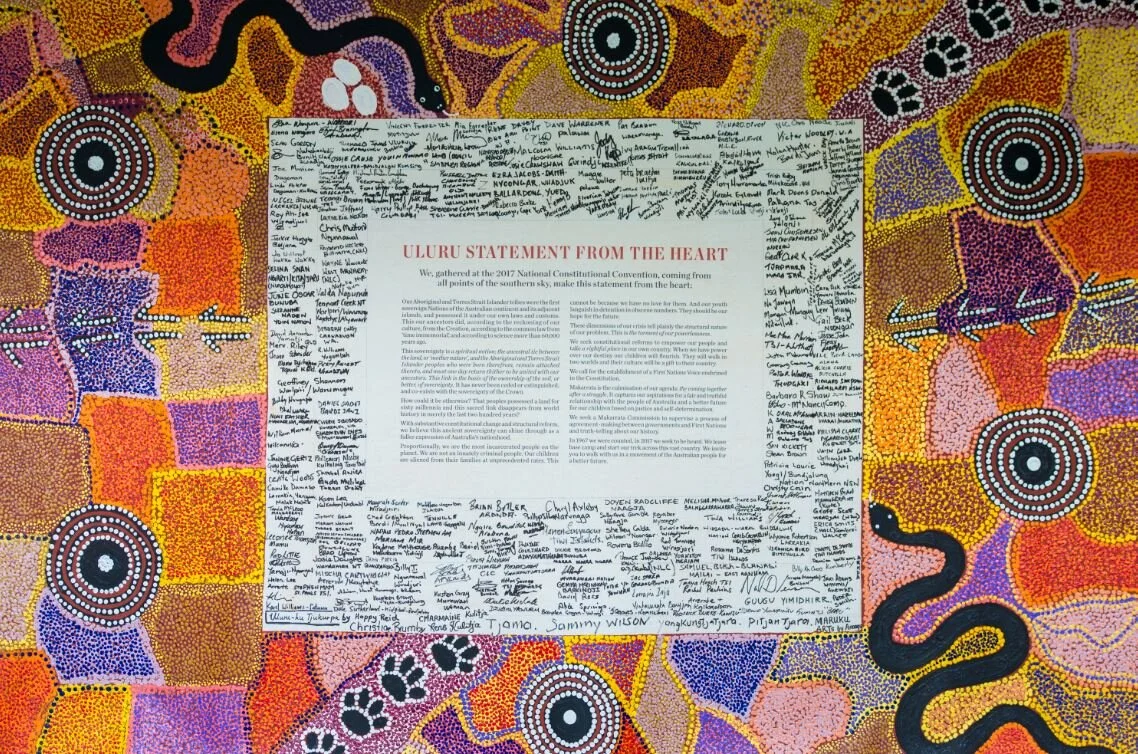In partnership with the National Foundation for Australian Women (@NFAWomen), we are running a series of pieces that analyse how the Covid-19 pandemic is differentially impacting on women. In today’s analysis Kathy McDermott of NFAW provides the second in a three-part series that looks at women and employment. Today’s piece examines changes in legislation that are curtailing worker’s rights.
Read MoreIn partnership with the National Foundation for Australian Women (@NFAWomen), we are running a series of pieces that analyse how the Covid-19 pandemic is differentially impacting on women. In today’s analysis Kathy MacDermott of NFAW provides the first in a three-part series that looks at women and employment. Today’s piece examines the JobKeeper payment.
Read MoreAcross Australia, most families are sheltering at home. In today’s analysis, Elizabeth Hill (@ElizabethHill00), of University of Sydney (@SydneyUni) and the Australian Work and Family Policy Roundtable, explains how that is differentially impacting women and how this moment in time can strengthen our social norms and economy going forward.
Read MoreIn partnership with the National Foundation for Australian Women (@NFAWomen), we are running a series of pieces that analyse how the Covid-19 pandemic is differentially impacting on women. In today’s analysis Helen Hodgson, of Curtin University (@CurtinUni), provides a helpful explainer of changes to early access to superannuation and the differential impacts on women who choose to access these funds.
Read MoreThe Covid-19 virus has exposed the weaknesses in every social and economic system it has touched. In today’s analysis, Leonora Risse (@Leonora_Risse) of RMIT (@RMIT) and the Women and Public Policy Program at Kennedy School (@wapppHKS) provides a 2-part analysis of what’s going wrong for women right now and how it could be addressed. Today’s Part 2 provides thoughts on how work inequalities that have been exposed by the pandemic can be addressed. You can read Part 1, which provides an overview of how women are differentially impacted by their employment and unpaid work, here.
Read MoreThe Covid-19 virus has exposed the weaknesses in every social and economic system it has touched. In today’s analysis, Leonora Risse (@Leonora_Risse) of RMIT (@RMIT) and the Women and Public Policy Program at Kennedy School (@wapppHKS) provides a 2-part analysis of what’s going wrong for women right now and how it could be addressed. Today’s Part 1 provides an overview of how women are differentially impacted by their employment and unpaid work. Tomorrow Part 2 will provide thoughts on how these inequalities can be addressed.
Read MoreIn partnership with the National Foundation for Australian Women (@NFAWomen), we are running a series of pieces that analyse how the Covid-19 pandemic is differentially impacting on women. In our first of the series, Frances Davies (@fdavies49), of the NFAW Social Policy Committee, provides an overview of the Jobseeker, Jobkeeper, and other stimulus payments and what they will mean for women.
Read MoreResearch by Evgenia Bourova, Professor Ian Ramsay and Professor Paul Ali at Melbourne Law School highlights the challenges that financial counsellors and other consumer advocates face in assisting women with debt problems resulting from economic abuse — an often ‘hidden’ form of family violence. The risk of this type of abuse escalating during and in the wake of the COVID-19 pandemic is high. This article was originally published on Broad Agenda.
Read MoreAustralians are increasingly isolating in an attempt to flatten the curve of Covid-19’s spread. This is having profound impacts on our everyday lives, but the evidence is clear that the impact is far greater for women. In today’s piece, Policy Whisperer Susan Maury (@SusanMaury) of Good Shepherd Australia New Zealand (@GoodAdvocacy) outlines some of the key concerns for women’s safety that quarantine measures and its impacts are raising. If you need immediate help, call 000. If you are looking for advice or support, contact 1800RESPECT.
Read MoreSocial inclusion is a determinant of mental health and wellbeing. In today’s analysis, Autumn Pierce (@otonoenespanol) of Women’s Health East (@WHEast) shares highlights from their important new report The Unheard Story: The Impact of Gender on Social Inclusion for Older Women, which explores how inequalities accumulate across the lifespan to increase the risk and impacts of social exclusion for older women.
Read MoreIn the wake of International Women’s Day last Sunday, an annual United Nations day with a 2020 theme of ‘I am Generation Equality: Realising Women’s Rights’. Sarah Squire (@SquireSarah) of the Butterfly Foundation (@BFoundation) explores the role that diet culture and other sociocultural factors play in women and girls’ lives. Reflecting on some key challenges, she suggests policy levers and tips for improving women’s relationships with their bodies. This blog originally appeared on The Butterfly Foundation website.
Read MoreImplementation of the National Disability Insurance Scheme (NDIS) is the biggest reform to the disability sector since deinstitutionalisation. To the broader community it can be assumed that the NDIS will benefit all people with disabilities. In the week of International Women’s Day, Jen Hargrave (@Jen_Hargrave) of Women with Disabilities Victoria (WDVtweet) and University of Melbourne (@MSPHSC) and Maeve Kennedy (@mkennedy_vic) of Children and Young People with Disability Australia (@CDA39) look into the reform’s fitness to achieve gender equality now and for the next generation.
In this piece we discuss the NDIS’ capacity to provide women with greater choice and control, and a number of areas of equity and sustainability. We also examine the way the NDIS supports, or fails to support, women experiencing violence and consider the potential impact of broader gender equality measures on a market-based scheme.
Read MoreAs described in our piece on what the revocation of the Equal Remuneration Order may mean for Australia’s female-dominated community services sector, ongoing government funding is critical to maintain quality services. In today’s companion piece, Kathy McDermott of the National Foundation for Australian Women (@NFAW) describes the advocacy efforts of the sector and peak bodies with the Morrison Government on this issue, and calls for meaningful engagement.
Read MoreMuch of the gender pay gap can be explained by different pay scales in male- and female-dominated industries, which raises questions of how society values health, education and social services. In a landmark ruling, an Equal Remuneration Order (ERO) was granted to social and community service workers to legislate a much-needed pay rise across the sector. In today’s piece, Natasha Cortis of UNSW shares insight from research she conducted with Megan Blaxland on the role that government supplementation has played in ensuring the sector could maintain quality service while also implementing the award. More information can be found in their report: Challenges for Australia’s Community Sector: ERO Supplementation.
Read MoreIn order to truly represent Australia in all its diversity, we also need greater diversity in our politics. Evidence shows that increasing female representation has a very real impact on the legislation that is raised. In Australia, however, while the numbers of women in politics is slowly inching upward, many women have said that engaging in politics come at a cost seldom borne by their male counterparts: Consider, for example, Nova Peris’ recent comments on the racial abuse she endured, or the slander endured by Senator Sarah Hanson-Young.
For International Women’s Day, in today’s post Blair Williams (@BlairWilliams26) of Australian National University provides an overview of her research into the way women Prime Ministers are portrayed in the media, how that denigrates their authority and capability, and the negative impact it is having on increasing female political representation.
Read MoreFew people are aware of co-design’s political roots. The concept first emerged in Scandinavia in the 1970’s through union insistence that workers be included in the major restructuring of their industries as a way of “emancipating workers at the workplace” (p. 145). Central in its philosophy is the tenet to equalise power as a prerequisite for true collaboration. For International Women’s Day, Summer May Finlay (@SummerMayFinlay) of University of South Australia explains why the government has shown bad faith in failing to adopt the full recommendations from the Uluru Statement from the Heart. As long as full citizen rights are withheld from Aboriginal and Torres Strait Islanders, women’s rights will also fail to be achieved.
Read MoreWith the recent announcement by the Coalition Government to expand the use of the Cashless Debit Card (CDC) to more people on income support, it is continuing to be positioned as a positive intervention, providing people who need it most with a ‘financial literacy tool.’ With approximately 2.3 million people receiving some form of income support, there is currently great interest in how the Card, as well as other forms of cashless welfare, are experienced by those who have been subjected to these policies. Today’s important piece by researchers Zoe Staines (@Zoettes), Greg Marston, Philip Mendes, Shelley Bielefeld and Michelle Peterie (@MichPeterie) draw on their ground-breaking independent report into experiences and impacts of cashless welfare to explain how women and children are adversely affected.
Read MoreToday marks the release of the second ACOSS and UNSW Poverty in Australia report, an important document to keep civil society and government accountable to those who are being left behind in one of the most prosperous countries on Earth. In today’s analysis, Policy Whisperer Susan Maury (@SusanMaury) of Good Shepherd Australia New Zealand (@GoodAdvocacy) provides a gendered analysis of the Poverty in Australia report.
Read MoreWhile women are slowly making headway in achieving senior ranks in the workplace, does title override gendered unconscious bias? Today’s insightful analysis from Amelia Loughland (@AmeliaLoughland) reports on her empirical research which finds that female judges on the high court are more likely to be interrupted by male counsel than their male counterparts. This analysis draws from an article soon to be published in the Melbourne University Law Review; an advance copy is available here.
Read MoreIn Australia, women’s presence in data is often cause for concern - for example, the way that women are monitored and controlled by the government when receiving welfare or attempting to collect child support; experiences magnified for Indigenous women. Their data invisibility can also be worrying; for example, when the time use survey dropped off in 2006 or when CALD women (and men) are excluded from mental health research. Data collection and use can create trauma, disadvantage and marginalisation; alternately divergent experiences are rendered invisible when data is not collected to tell silenced stories. In today’s analysis, the use and abuse of data gets the gender treatment from Marika Cifor (@marika_louise) and Patricia Garcia (@thebigfiveone). Together they led a workshop that created a “Manifest-No” which details both the harms and potential of data collection from a feminist and intersectional perspective. In today’s analysis they provide a rationale as well as a summary of main points; read the entire Manifest-No here, and find more information on the Manifest-No here.
Read More




















